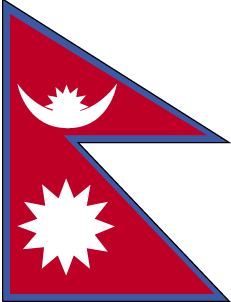Search
- Page Path
- HOME > Search
Educational/faculty development material
-
A new experimental community pharmacy internship module for undergraduate pharmacy students in western Nepal: overview and reflections

-
Sangita Timsina
 , Bhuvan K.C.
, Bhuvan K.C. , Dristi Adhikari
, Dristi Adhikari , Alian A. Alrasheedy
, Alian A. Alrasheedy , Mohamed Izham Mohamed Ibrahim
, Mohamed Izham Mohamed Ibrahim , Atisammodavardhana Kaundinnyayana
, Atisammodavardhana Kaundinnyayana
- J Educ Eval Health Prof. 2017;14:18. Published online August 16, 2017
- DOI: https://doi.org/10.3352/jeehp.2017.14.18
- 29,812 View
- 313 Download
- 5 Web of Science
- 2 Crossref
-
 Abstract
Abstract
 PDF
PDF - Community pharmacies in Nepal and other South Asian countries are in a mediocre state due to poor regulation and the fact that many pharmacies are run by people with insufficient training in dispensing. This has led to the inappropriate use of medicines. The problems due to poor regulation and the mediocre state of community pharmacies in South Asia encompass both academia and clinical practice. In this paper, a 2-week community pharmacy internship programme completed by 2 graduating pharmacy students of Pokhara University (a Nepalese public university) at Sankalpa Pharmacy, Pokhara, Nepal is illustrated. During the internship, they were systematically trained on store management, pharmaceutical care, counselling skills, the use of medical devices, pharmaceutical business plans, medicine information sources, and adverse drug reaction reporting. An orientation, observations and hands-on training, case presentation, discussion, and feedback from 2 senior pharmacists were used as the training method. A proper community pharmacy internship format, good pharmacy practice standards, and a better work environment for pharmacists may improve the quality of community pharmacies.
-
Citations
Citations to this article as recorded by- Using the Business Model Canvas to Guide Doctor of Pharmacy Students in Building Business Plans
David A. Holdford, Vasco M. Pontinha, Tyler D. Wagner
American Journal of Pharmaceutical Education.2022; 86(3): 8719. CrossRef - Rural Public Health Workforce Training and Development: The Performance of an Undergraduate Internship Programme in a Rural Hospital and Healthcare Centre
Luis Dos Santos
International Journal of Environmental Research and Public Health.2019; 16(7): 1259. CrossRef
- Using the Business Model Canvas to Guide Doctor of Pharmacy Students in Building Business Plans
Original Articles
- Feedback on and knowledge, attitude, and skills at the end of pharmacology practical sessions
-
P. Ravi Shankar
 , Nisha Jha
, Nisha Jha , Omi Bajracharya
, Omi Bajracharya , Sukh B Gurung
, Sukh B Gurung , Kundan K. Singh
, Kundan K. Singh
- J Educ Eval Health Prof. 2011;8:12. Published online November 30, 2011
- DOI: https://doi.org/10.3352/jeehp.2011.8.12
- 35,483 View
- 158 Download
- 5 Crossref
-
 Abstract
Abstract
 PDF
PDF - Concern has been raised about inadequate pharmacology teaching in medical schools and the high incidence of prescribing errors by doctors in training. Modifications in pharmacology teaching have been carried out in many countries. The present study was carried out using a semi-structured questionnaire to obtain students??perceptions of their knowledge, attitudes, and skills with regard to different subject areas related to rational prescribing at the end of two-year activity-based pharmacology practical learning sessions in a private medical school in Nepal. The effectiveness of the sessions and strengths and suggestions to further improve the sessions were also obtained. The median total knowledge, attitude, skills and overall scores were calculated and compared among different subgroups of respondents. The median effectiveness score was also calculated. Eighty of the 100 students participated; 37 were male and 43 female. The median knowledge, attitude, and skills scores were 24, 39, and 23, respectively (maximum scores being 27, 45, and 36). The median total score was 86 (maximum score being 108). The effectiveness score for most subject areas was 3 (maximum 4). The strengths were the activity-based nature of the session, use of videos and role-plays, and repeated practice. Students wanted more sessions and practice in certain areas. They also wanted more resources and an internet connection in the practical room. The skills scores were relatively low. The immediate impact of the sessions was positive. Studies may be needed to assess the long term impact. Similar programs should be considered in other medical schools in Nepal and other developing countries.
-
Citations
Citations to this article as recorded by- Pharmacists’ Knowledge and Practice of Issues Related to Using Psychotropic Medication in Elderly People in Ethiopia: A Prospective Cross-Sectional Study
Gashaw Binega Mekonnen, Alemante Tafese Beyna
BioMed Research International.2020; 2020: 1. CrossRef - Palestinian pharmacists’ knowledge of issues related to using psychotropic medications in older people: a cross-sectional study
Ramzi Shawahna, Mais Khaskiyyi, Hadeel Abdo, Yasmen Msarwe, Rania Odeh, Souad Salame
Journal of Educational Evaluation for Health Professions.2017; 14: 8. CrossRef - Role-Play Preceded by Fieldwork in the Teaching of Pharmacology: from “Raw Sap” to “Elaborated Sap”
Daniel Riani Gotardelo, Valdes Roberto Bóllela, Anderson Proust Gonçalves Souza, Daiane de Paula Barros, Jesus Mística Ventura Balbino, Denise Ballester
Revista Brasileira de Educação Médica.2017; 41(4): 533. CrossRef - Recall of Theoretical Pharmacology Knowledge by 6th Year Medical Students and Interns of Three Medical Schools in Riyadh, Saudi Arabia
A. A. Mustafa, H. A. Alassiry, A. Al-Turki, N. Alamri, N. A. Alhamdan, Abdalla Saeed
Education Research International.2016; 2016: 1. CrossRef - Transcripts of a Medical Education in Humanities Module
P. Ravi Shankar, Kundan Kr. Singh, Ajaya Dhakal, Arati Shakya, Rano M. Piryani
International Journal of User-Driven Healthcare.2012; 2(3): 63. CrossRef
- Pharmacists’ Knowledge and Practice of Issues Related to Using Psychotropic Medication in Elderly People in Ethiopia: A Prospective Cross-Sectional Study
- Student feedback about The Skeptic Doctor, a module on pharmaceutical promotion
-
P. Ravi Shankar
 , Kundan K. Singh
, Kundan K. Singh , Rano M. Piryani
, Rano M. Piryani
- J Educ Eval Health Prof. 2011;8:11. Published online November 30, 2011
- DOI: https://doi.org/10.3352/jeehp.2011.8.11
- 27,977 View
- 146 Download
-
 Abstract
Abstract
 PDF
PDF - Pharmaceutical promotion is an integral part of modern medical practice. Surveys show that medical students have a positive attitude towards promotion. Pharmaceutical promotion is not adequately taught in medical schools. A module based on the manual produced by Health Action International was conducted for second year medical students at KIST Medical College, Lalitpur, Nepal. Student feedback on various aspects of the module was obtained using a semi-structured questionnaire. Eighty-six of the 100 students (86%) provided feedback about the module. Forty-five (52.3%) were female and 39 (45.3%) were male. Participant feedback about the module was positive. Small group work and role plays were appreciated, and the ratings of the module and the manual were satisfactory. Respondents felt pharmaceutical promotion will play an important role in their future practice and that the module prepared them to respond appropriately to promotion and select and use medicines properly. The module further developed on issues covered during pharmacology practical and majority felt the module was of relevance to Nepal. Students appreciated the module though there were suggestions for improvement. The module should be considered during the years of clinical training (third and fourth years) and internship and in other medical schools.
Brief Report
- Conducting correlation seminars in basic sciences at KIST Medical College, Nepal
-
P. Ravi Shankar

- J Educ Eval Health Prof. 2011;8:10. Published online October 17, 2011
- DOI: https://doi.org/10.3352/jeehp.2011.8.10
- 27,397 View
- 135 Download
- 3 Crossref
-
 Abstract
Abstract
 PDF
PDF - KIST Medical College is a new medical school in Lalitpur, Nepal. In Nepal, six basic science subjects are taught together in an integrated organ system-based manner with early clinical exposure and community medicine. Correlation seminars are conducted at the end of covering each organ system. The topics are decided by the core academic group (consisting of members from each basic science department, the Department of Community Medicine, the academic director, and the clinical and program coordinators) considering the public health importance of the condition and its ability to include learning objectives from a maximum number of subjects. The learning objectives are decided by individual departments and finalized after the meeting of the core group. There are two student coordinators for each seminar and an evaluation group evaluates each seminar and presenter. Correlation seminars help students revise the organ system covered and understand its clinical importance, promote teamwork and organization, and supports active learning. Correlation seminars should be considered as a learning modality by other medical schools.
-
Citations
Citations to this article as recorded by- Clinical Correlations as a Tool in Basic Science Medical Education
Brenda J. Klement, Douglas F. Paulsen, Lawrence E. Wineski
Journal of Medical Education and Curricular Development.2016; 3: JMECD.S18919. CrossRef - Students’ perception of the learning environment at Xavier University School of Medicine, Aruba
P. Ravi Shankar, Arun K Dubey, Ramanan Balasubramanium
Journal of Educational Evaluation for Health Professions.2013; 10: 8. CrossRef - Challenges in conducting the undergraduate medical program in a medical school in Nepal: A personal selection
P. Ravi Shankar
Education in Medicine Journal.2012;[Epub] CrossRef
- Clinical Correlations as a Tool in Basic Science Medical Education

 KHPLEI
KHPLEI

 First
First Prev
Prev



